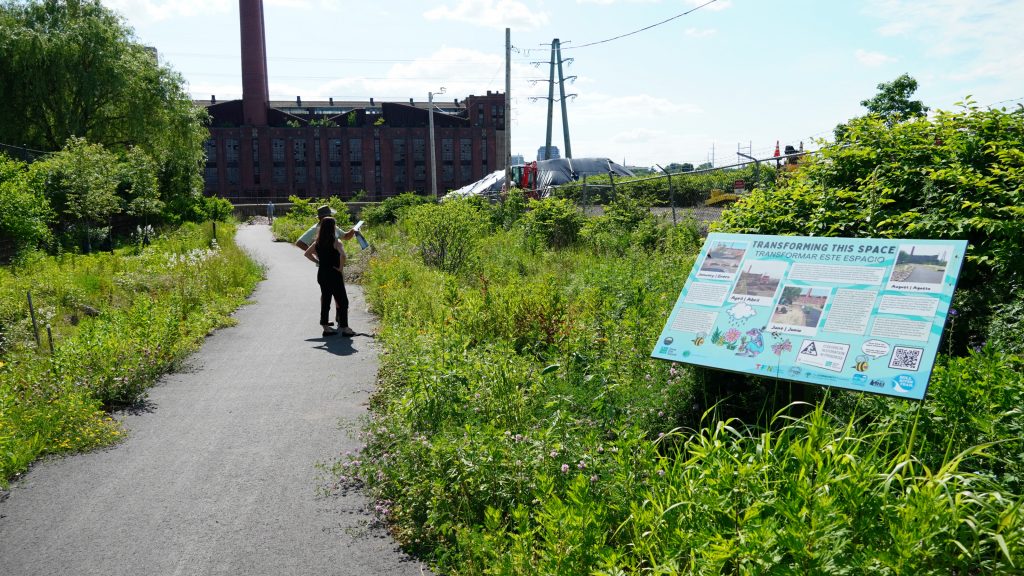
Red clover, milkweed, and yarrow now grow at the corner of Haven and Exchange Street in Fair Haven. Once an underutilized, abandoned lot in the shadow of English Station, last year this space was transformed into the Mill River Trail Green Infrastructure Park and community rain garden as part of the Urban Waters Initiative project (UWI). A year later, native plants grow and beneath them layers of rock, sand, and soil are layered with intention, filtering stormwater pollutants collected from impervious, manmade surfaces during rainstorms.
This year, the green infrastructure park is being activated with a series of events, organized by Save the Sound and community partners. Fair Haven residents can attend a wide variety of gatherings, workshops, site visits, and training sessions inspired by themes that culminated during the 2023 PhotoVoice project, when Fair Haven residents shared their visions for a better Fair Haven through photography. Participants in the program captured images that communicated their desires – more blue and green spaces, transformed abandoned areas, and a cleaner, litter-free environment.
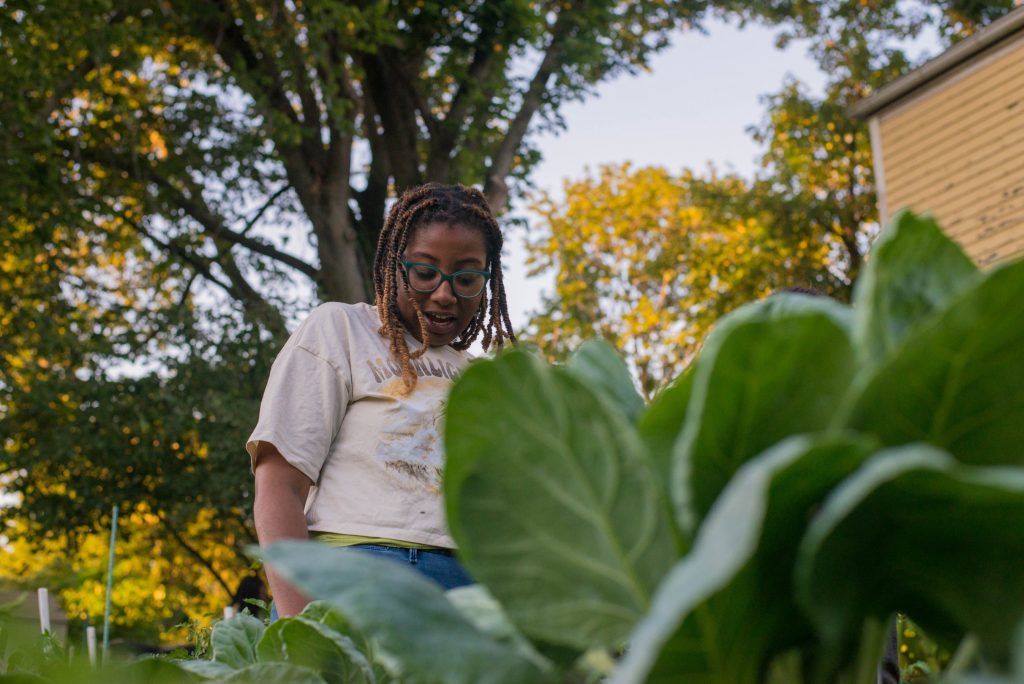
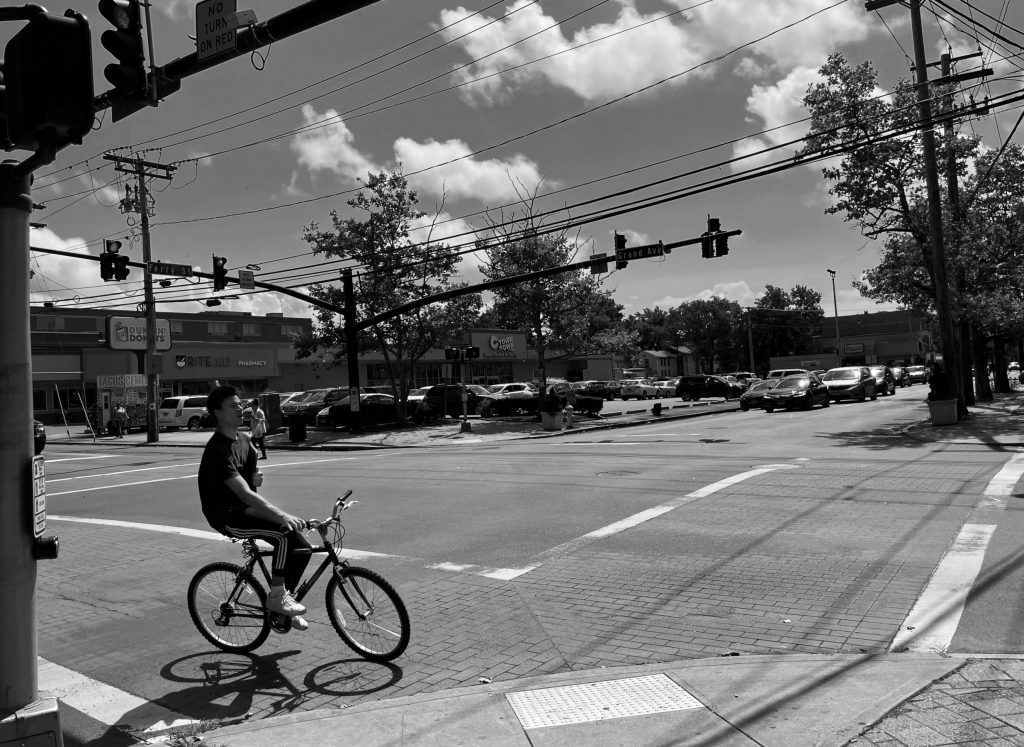
Fair Haven is an environmental justice community, clearly illustrated in the Connecticut Environmental Justice Communities map, released by CT DEEP. “The mission of environmental justice is to provide a safe and healthy environment for all to enjoy, yet there are communities who suffer from air and water pollution more than others. Connecting Fair Haven residents with the Mill River and resources to improve nearby green spaces supports the mission,” says Alex Rodriguez, Save the Sound’s environmental justice specialist
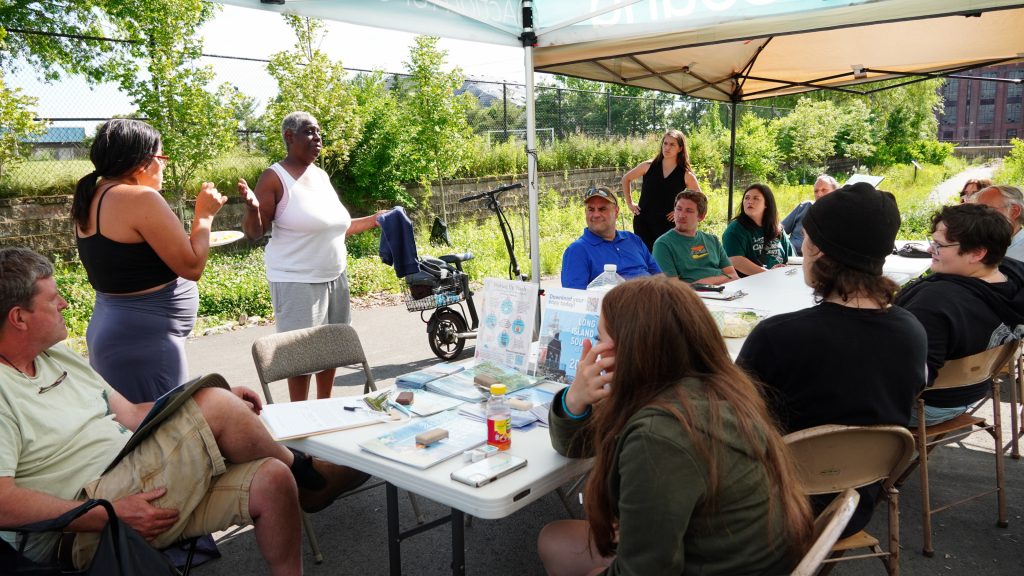
UWI’s second year began on June 12 with the Creating a Path for Action event at Haven and Exchange Street Park, co-led by Project Blue at Southern Connecticut State University, with over 30 attendees. Fair Haven residents attended this informal community discussion to share their environmental concerns, questions, and ideas for actionable pathways to improve the neighborhood.
New Haven decision makers and leaders in local government attended the event, such as Caroline Smith, Alder for Ward 9, and Brian Wnek, Environmental Health Director for New Haven. During the community discussion, Fair Haven residents expressed similar desires to those that came out of the PhotoVoice project.
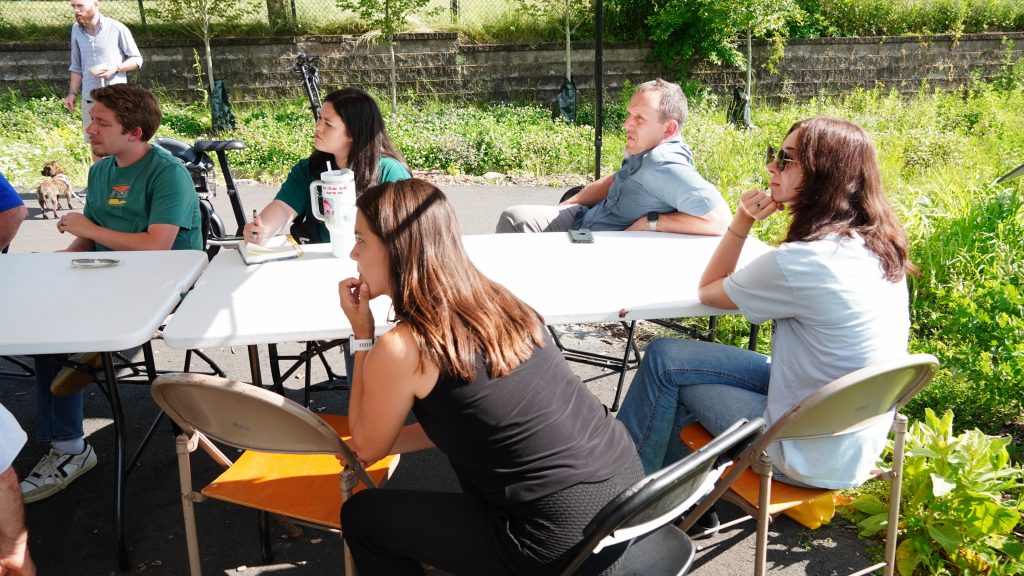
The discussion centered around increased food access, more community gardens and food forests, a desire for green space, youth engagement programs, resources for the unhoused community, alleviation of trash, access to cooler community spaces during summer’s heat waves, improved public transit, and pedestrian safety.
Actionable pathways that emerged included long term volunteer and green job engagement opportunities, natural playscapes and green space development in partnership with university programs and students, creating a grassroots movement via regular and continued community events throughout Fair Haven, and engaging youth through public education and partnership for environmental justice.
“I hope the UWI Project will exemplify the importance of community representation and integration for neighborhood-based environmental projects,” says UWI community leader Xochitl Garcia. “Local residents are experts of their communities.”
Still to come are UWI trainings on how to build your own rain garden, environmental justice talks at JUNTA, a recycled art workshop at the Fair Haven Public Library, a documentary storytelling workshop with Drawdown Project, and a culminating, community celebration called Chill at the Mill, to take place at the end of August. You can learn more about the project and register for UWI events here.
